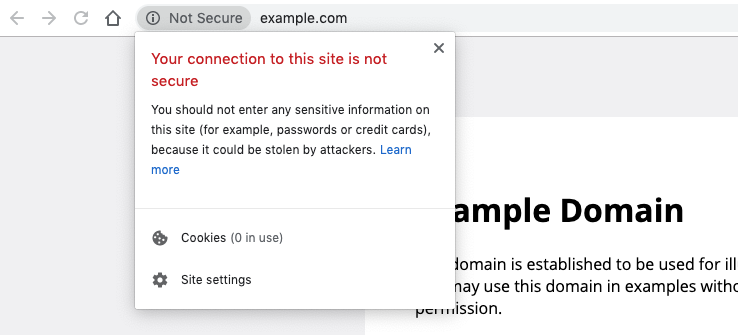If you have any preconceptions of whether or not you need an SSL certificate for your small business website, it’s probably something to the effect of, “well I don’t have an online store, so I don’t need to secure my website.” Right?
Well, here’s why you may want to re-think that.
Website security is no longer just “nice-to-have.”
Since as far back as 2014, SSL security has been upgraded as an official SEO ranking factor. From Google:
…Over the past few months we’ve been running tests taking into account whether sites use secure, encrypted connections as a signal in our search ranking algorithms. We’ve seen positive results, so we’re starting to use HTTPS as a ranking signal. Over time, we may decide to strengthen it, because we’d like to encourage all website owners to switch from HTTP to HTTPS to keep everyone safe on the web.
Official Google Webmaster Central Blog, SSL as a Ranking Signal
So, What is an SSL Certificate? [Video]
Here’s why every small business website (whether or not you sell online) needs to be SSL-secured.
An SSL Certificate can improve your website’s ranking.
That’s right. As of 2014, Google has started favoring websites with SSL certificates in its website search ranking algorithm. That means if your competitors are securing their websites and you’re not, you could be edged out of important top local and organic rankings.
An SSL Certificate can keep your customers’ information safe and secure.
SSL certificates aren’t just for online retailers. A secure website protects against important data breaches and keeps your customer’s information—like the information they’d enter on a quote or contact form—safe and secure.
An SSL Certificate can influence how trustworthy your company appears to potential customers.
In 2018, Google doubled-down on its stance on website security across the web. Last year, they rolled out an official update to their Google Chrome web browser, which began to display a “Not Secure” warning to users who visited a website that wasn’t fully SSL-secured.

An SSL Certificate can improve your website’s bounce rate.
Looking at that screenshot above, you might begin to form an opinion on what some users may want to do next, and it ain’t “enter their credit card information.” Nope, you guessed it. They’ll likely want to leave right away!
This is referred to as a “Bounce,” and is something every small business owner should be focused on addressing.

An SSL Certificate can improve your website’s conversion and lead generation rate.
According to a web user study conducted by DigiCert.com, the results are clear: web security influences conversion and purchasing decisions.
A staggering 67% of respondents stated they simply would not buy from a company or an unfamiliar website that did not have an SSL Certificate.
An SSL Certificate costs less per year than a subscription to Netflix.
And wouldn’t you know it? SSL security doesn’t cost that much. It’s even pretty easy to install using several managed service providers. The following resources will help you learn more about how to purchase and configure an SSL Certificate for your small business website:




